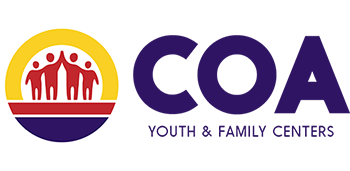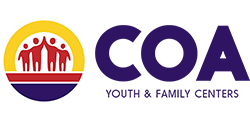Project Description
Teresa is a mother of three who participated in COA’s 2019 HIPPY (Home Instruction for Parents of Preschool Youngsters) program with her daughter Rosa. Teresa became aware of HIPPY during a presentation led by HIPPY staff at her daughter’s school. Teresa signed up on the spot, and soon received a call from HIPPY to enroll then five-year-old Rosa in the program. Teresa didn’t know it at the time, but that phone call would change her family’s life forever.
HIPPY came into Teresa’s life at a time when her family needed it most, as if HIPPY had “fallen from heaven.” When Rosa was six months old, Teresa noticed she was experiencing spasms and brought her to see a specialist. Teresa learned that Rosa was born with a rare neurological condition causing epileptic seizures and developmental delays. At six years old, Rosa’s physical and mental development is similar to that of an average two-to-three year old. Because of Rosa’s condition, Teresa and her family saw her as fragile. This fragility terrified Teresa and her husband, as well as Rosa’s siblings, making it difficult to know the best way to interact with Rosa and connect as a family.
Everything changed for Teresa and her family when she started HIPPY. Teresa’s bilingual Parent Partner, Maria (name changed for privacy), worked closely with Teresa over a period of 30 weeks, teaching her hands-on learning activities to do with Rosa to boost her motor, cognitive, and social-emotional development. Maria helped Teresa understand these important concepts and identify milestones for Rosa – empowering Teresa to guide Rosa’s growth.
“with HIPPY, there’s always someone who’s got your back!”
In addition to doing fun math and science activities together, Teresa began integrating Rosa into the family’s daily routine and household chores. Rosa is now doing all sorts of things Teresa didn’t realize she could do for herself. Before HIPPY, Teresa did everything for Rosa. Now Rosa enjoys picking out her own clothes to wear and dressing herself, opening her own milk, and using utensils to feed herself.
Together Maria and Teresa built a mini library in the family home and filled it with books from COA’s Read Everywhere library. While Rosa cannot yet talk, read, or write, Teresa discovered she enjoys being read to. When Rosa wants Teresa to read her a book, she simply grabs it from the library and brings it to her. Rosa’s book choices have become a powerful tool for her to communicate how she feels and express what she needs in the moment.
Teresa says that HIPPY has “integrated the whole family.” Teresa’s husband started listening in on home visits with Maria and has taken the initiative to engage Rosa in HIPPY activities. Teresa’s communication with her husband has improved, they now both talk more openly about Rosa and life in general. Rosa’s siblings have also enjoyed doing HIPPY activities with her, and love attending HIPPY family gatherings. When schools closed in March, Teresa applied what she learned in HIPPY to homeschool all her children. She knew what to teach and organized the assignments just like the HIPPY curriculum.
As a mother, Teresa has learned to “let go” of her fears and now lets Rosa explore on her own what she is capable of. Rosa’s development has grown by leaps and bounds and her self-confidence has skyrocketed; she now has a newfound sense of independence and belonging. The whole family is closer than ever before and even started eating regular family meals together. “As parents, we can all use a little help,” said Teresa, “with HIPPY, there’s always someone who’s got your back!”


